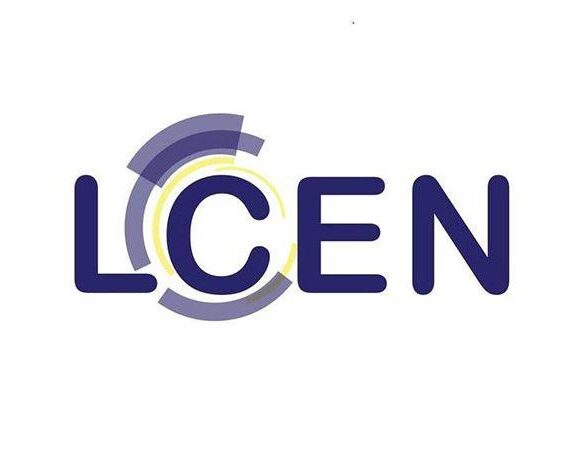Water charges have become one of the major political issues of our time, and arguably significantly influenced the outcome of the general election earlier this year.
The suspension of charges earlier in 2016 marked a temporary victory for those who opposed them – but there is no question the subject remains a major source of controversy, and has continued to provoke debate and headlines ever since.
So, where exactly are we at now in relation to Irish Water and water charges – and what could happen next?
Where we’re at
As part of an agreement reached between Fianna Fáil and Fine Gael during government formation talks, water charges have been suspended for nine months.
The suspension came into effect on July 1st, and is officially in place until March 31st next year.
It was introduced to allow the Expert Commission on Domestic Public Water Services to carry out their work. The group is examining different ways of funding water services, and will issue recommendations to the Dáil once their work is completed.
The commission is expected to submit their report later this year, although legislation allows the suspension of charges to be extended if necessary.
Currently, Irish Water is operating as normal, but it is not issuing new bills. However, the organisation and Government officials have insisted that customers are still liable for bills that were issued before the suspension came into effect.
Where the parties stand
A majority of TDs in the current Dáil ran for election on anti water charge platforms. Fianna Fáil, Sinn Féin, Anti-Austerity Alliance / People Before Profit, the Social Democrats, and a vast majority of Independents called for either the abolition of charges or major reform of the system.
Fianna Fáil, however, reached an agreement with the minority Government to suspend water charges for nine months while the existing system was reviewed by the expert commission.
A Sinn Féin Dáil motion to scrap charges and abolish Irish Water – one of the first major tests for the then newly-formed Government – was defeated in May as a result of Fianna Fáil’s decision to abstain from the vote.
Fine Gael remains in favour of water charges. In their election manifesto, the party had pledged to “keep water charges at their current level until 2018. Any rise in average charges after 2018 will be limited to, at most, the overall rate of consumer price inflation. We will also maintain a cap on maximum charges for the entire duration of Irish Water’s Business Plan (2016-21)”.
The party has also said they will ensure the company remains in public ownership.
The Labour party has also frequently defended a charging regime. As former environment minister Alan Kelly argued on Newstalk Drive yesterday:
“The biggest user of energy and carbon emissions in the public sector is actually water. So if we really care about the environment, we have to ensure we have a fair and modest charge for it.”
However, in its election manifesto this year the party stressed that measures should be taken to guarantee that public water supplies “cannot be sold to private interests”
The Green Party is in favour of charging for water, but believes that everybody is also entitled to a free allocation.
They say that charges would be in place for the use and disposal of water after the allocation, and that “water metering is the most effective way to encourage water conservation”.
However, they have also said they will ‘absolutely oppose’ any attempt to privatise public water supplies, and propose a new constitutional amendment to enshrine public ownership.
What happens next
The next stages will remain uncertain until the commission issues its recommendations. However, there has been plenty of debate over what should – and indeed what can – happen next.
Fine Gael have conceded that there will likely be changes to the current system. Speaking on Newstalk Breakfast this morning, Minister Simon Coveney explained: “I think it’s very unlikely that we’d reintroduce water charges on the same model that was there before, because I think there’s a need here for a change in approach.”
However, the party is insisting that some sort of charging process will have to remain in effect.
“I do think that a lot of people in Ireland understand the logic behind people making a contribution linked to the amount of water that they use,” Minister Coveney argued.
Opposition groups are continuing to call for a complete abolition of charges, and Fianna Fáil has now suggested that water services be paid for through general taxation.
Those in favour of abolition have strongly contested the European Commission’s suggestion earlier this year that there is no way for Ireland to legally abolish its system of water charges.
Only yesterday, Dublin Sinn Féin MEP Lynn Boylan said legal advice she has received confirms charges can be scrapped.
This in turn was contested by Alan Kelly, who has claimed there is legally ‘no way back’ following our adoption of charges in the first place.
The Irish Times reports that Fine Gael has warned that Ireland could be “financially exposed to EU compliance proceedings” if charges are scrapped – following on from European warnings that we could face daily fines if charges are abolished.
The exact cost of abolishing Irish Water and charges has been a source of controversy too, with some going as far as suggesting completely scrapping the system could lead to a loss of upwards of €7bn (that figure has been heavily disputed).
Sinn Féin has argued that the suggestion that it would cost €100m to wind up Irish Water alone was a figure ‘plucked from the air’.
In the meantime, the anti-water charges movement has continued in earnest. Groups such as People Before Profit / Anti Austerity Alliance have continued to call for people to boycott paying their water bills, while Irish Water figures have shown huge levels of non-payment.
The next major national demonstration against water charges is being organised in Dublin city centre this coming Saturday, with the Right2Water group expecting tens of thousands of people to attend.













